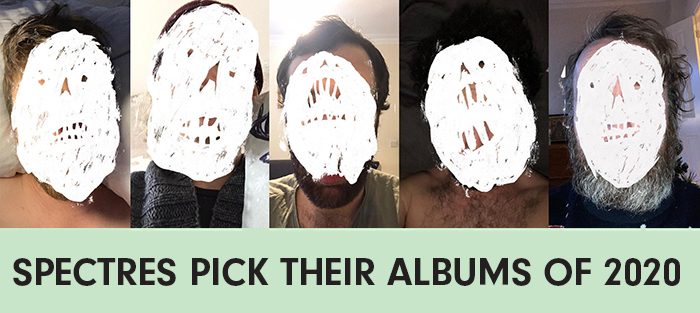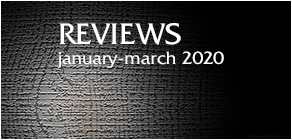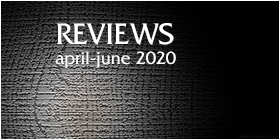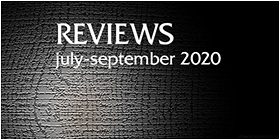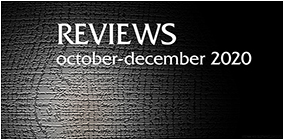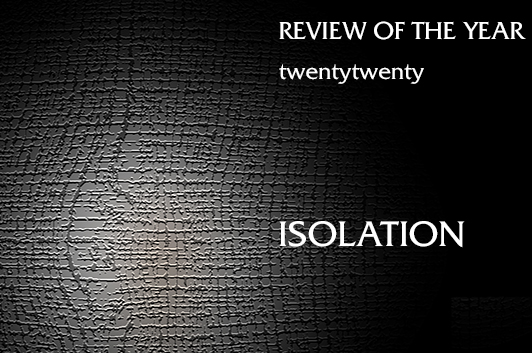
This Is What You Want, This Is What You Get
And so it continues. 2020 has been another fine year for alternative music and there has been no let up in the range and depth of sounds being produced, much of it of astonishing quality. Young bands are not only embracing the ethos of the underground, but they are looking to stretch the realms of possibility even further and discover treasures in remote corners that have not been seen for many years. Waves of young listeners are warming to this and there are no signs of the renaissance faltering any time soon which is a heart-warming thing.
Of course much of this is down to technology. It is far easier for bands to produce music now than it was in the analogue age. It is far easier to create new sounds. When Keith Levene was setting up the studio for the recording of The Flowers Of Romance in 1980 he said that it took him three days to arrange the miking to capture the right drum sound. In his studio now he can do it in ten minutes and have more options open to him. Recording is easier, releasing a record is easier ... making a career out of music may be much harder.
A lot of alternative bands these days are forced to make music in their leisure time and have other jobs from which they make their living. If anything, this has made musicians more accessible. They are not isolated in an artistic bubble; they lead normal lives and mix with everybody else. Social media has made them available to the people who support their music and there is a lot of interaction. Of course there are the arseholes who believe they have been set apart by grace, but there always were. There are just fewer of them. This change in circumstances has also opened up the gateway to experimentation. If you don't rely on record sales for your living, there is far less pressure on you to make your music more accessible and consumer-friendly. For the first time since the great divide of 1980, there are a lot of fearless bands who are pressing ahead with whatever is in their heads. They don't want to be pop stars, they are looking to make a difference with the music they are creating. And trusting in its quality to see them through. Back in the late seventies and early eighties this felt like revolution; in the twenty-twenties it feels like a rearguard action but either way it is still the right thing to do. We will always claim the moral high ground.
Society has changed since those glory days. Much of this has been at the hands of corporations who now rule the world and who long-ago realised that the best way to boost sales is to break down individuals into their component parts. They drive a wedge through society so that they can target people's weaknesses. Divide nations, inspire hatred and jealousy, polarise opinions and maximise profits. The weaker the government and the weaker the bonds that unite us, the easier it is to pick off the individual. We are not people now, we are consumers. If you think you make your own decisions then you are not realising that the faces who hold the real power know you down to your DNA and will be pulling the strings to make you dance to their tune, while all the while you revel in your uniqueness. We live in an era where laughable politics is being taken seriously, where ludicrous individuals are placed in political office to further corporate aims, and where everybody blames everybody else for their troubles. They pick off the weak in an era when we have all become weak, yet believe we are strong.
Excited by the continuing wave of great music last year, we naively considered whether it was possible to rebuild the mighty sub-culture that came into being when music split between the mainstream and the underground around 1979-80. If you weren't of an age at that time you will never be able to grasp exactly how that felt; it was a seismic shift that gave the dispossessed a real home and made them a part of something that was positive, dynamic, intelligent and all of their own. It was wiped out around the millennium when the alternative was assimilated into the mainstream and then ruthlessly brushed aside. A culture that once had three serious music papers writing brilliantly to over a million readers every week became virtually extinct. The recent upsurge in interest in the alternative scene made us consider whether this could be resurrected in some way, but things have been broken apart too far to rebuild anything of that strength and worth. We have been shepherded into isolation, tapping away on our computers, attempting to be recognised as kings of our own little realms. We have followers. We follow grudgingly. We are exposing our weakenesses to a corportion that had revenues of $3.46 billion in 2019 and paid virtually no tax. We're so pretty....
When you are questioning whether it is possible to re-assemble a culture, the most heart-breaking thing is to be immediately attacked for so doing. It gave us the answer we were looking for long before we thought we would find it. Our end of year list was "wide of the mark" one critic explained, and "wasn't the solution". What fucking mark? Of course this was never defined; the criticism was just a random blast at something that somebody else had created. In today's world that is an invitation to attack. And what are we trying to solve? This is an alternative music site attempting to promote bands who make the music we like; we are not attempting to cure the social ills of the world. Since the early 1980s all we have tried to do is bring attention to the bands and the music we think is worthy. We have worked on gigs, promoted gigs, released records, written countless reviews of gigs and albums, interviewed, discussed and urged. We have financially supported music and never once financially gained from it. If only we had realised we were doing everything wrong.
The brightest point of this last year was discovering a branch of our society that seems removed from any such pettiness. The followers of psych music, embraced by the Psych Lovers Facebook group, are fanatical about their music and are quick to build things up rather than tear things down. There is a real community where people work together, mix and socialise happily. There is barely a negative thought expressed and an overriding delight that the scene is flourishing. We were drawn there by the increasing amount of crossovers from the alternative field. More and more bands with psych leanings were impressing us and so many more have been discovered since we joined forces. Once again, more than a few of our top fifty will be found in the lists of the many psych blogs that can be found online.
Whereas we were no strangers to the pleasures of the Fuzz Club label, there are many psych labels around that are producing great music which is released with such fantastic care, dressed in beautifully printed sleeves with quality artwork and pressed in kaleidoscopic bursts of coloured vinyl. There's a pride in their work at which every band and label should aim; the alternative scene was always about the whole package. One label we did not know about until this year was Weird Beard. Their output over 2020 was impressively strong and we are delighted that co-founder Dai Croll has agreed to add his thoughts on the year to this ramble. If you haven't delved into the psych world, you will find it expansive and fascinating and you will end up hopelessly out of pocket.
Lists, lists, lists. We have again included a few and can't seem to wean ourselves away from the Mojo choices that annoy us every year. This may well be their most alternative list to date, but it remains hugely safe and inherently depressing. Chuck in Cornershop and Idles and rebalance things by putting Dylan at the top. The covers of their magazine this year featured Liam Gallagher, Nick Cave, the Foo Fighters and Paul Weller, ageing icons of differing worth, and these were joined by Leonard Cohen, Joy Division, Jimi Hendrix, Talking Heads, David Bowie, The Beatles, Queen and Bob Dylan. There's nothing wrong in reading about these artists, but in an historical context only; it's the pretence they even care about new music that is so galling. They rate half a billion albums a year as essential when the real quota would be about five with a fair number more worthy of serious consideration. In the real world how many records really deserve to be given nine out of ten, let alone ten? If this was football, how many players in the history of the game could be rated as a ten? Three, perhaps, out of hundreds of thousands. Such quality is rare; the promise of quality is to be encouraged and those who narrowly miss out on achieving it are to be applauded. Unmerited praise is only damaging. Of course, it pays to be nice to the companies that advertise in your pages.
Meanwhile Uncut has proclaimed itself "the spiritual home of great rock music." Inspired by their undoubted wisdom, we have decided to become "the spiritual home of all grumpy bastards who feel they have been banging their heads against a brick wall for the past twenty years." Catchy that. No doubt the cash will start to roll in as we proclaim all albums deserving of eleven out of ten. The Uncut albums of the year are virtually identical to those of Mojo. Funny that. Same advertisers?
We also feature a couple of lists from important independent record shops. These are worth a glance. Of course, these often feature artists whose records are still clogging up the shelves, especially those in "unique" formats and Rough Trade is certainly guilty of playing this game. They are, however, an iconic symbol of the independent scene and have an original PiL poster in their shop in west London that has remained untouched for over forty years, so we will forgive them much. We have a lot of time for Brighton's Resident, which was for many years our nearest independent shop. The staff know their music backwards and their perfect-bound annual discusses over one hundred titles from various genres. Pleasingly, they have cut back their albums of the year list to a mere ten and have made a case for all of the other contenders.
Any site that awards The Lovely Eggs the album of the year is alright in our books and the Louder Than War website remains an essential tool for all lovers of alternative music. Unfortunately, their printed magazine was unable to survive this year's crisis and that was a major blow as it was the only publication left that focussed solely on the alternative scene. We forgive them their tendency to be too nice to everybody and even for suggesting that Genesis may in some way be cool as it is clear that life would be much the poorer without them.
All in all, it has been a pretty odd year. Having been locked down in March 2020 who would have believed we would still be buried by restrictions in January 2021? For us, it has been a year of virtually no income and struggle. Fortunately, when hit by the virus it was only mildly. We are lucky in that we have not lost anybody close to us. Too many have not been so fortunate. The lockdowns have allowed us the time to listen to a whole lot more music though we have been unable to buy as many records as we would have liked or contributed to the important causes we support. We saw numerous bands in January but the lack of live music has hit harder as the year has progressed. Our thoughts are with all of those artists who have struggled and lost income. And to those who will find life more complicated after Brexit. You are such an important component in our lives that we hope 2021 will offer deserved relief.
It is difficult to discern exactly how large an effect the pandemic and subsequent lockdowns had on music sales. There is no doubt they contributed to an overall rise, but this is a trend that has been in place for some years now. The BPI recently reported there had been 139 billion audio streams in the UK over the year, an increase of some 20% from 2019. That is a sizeable leap, and there were nearly two hundred artists who had their music streamed over 100 million times. 155 million albums were either streamed or purchased, with the pandemic certainly not having an adverse effect on the overall sales of recorded music, though it is noted they did dip a little at the beginning of the first UK lockdown. The BPI stated that streaming now accounts for four-fifths (80.6%) of the UK’s overall music consumption, though physical formats remain popular. All of the best selling albums of the year had a large percentage of physical sales, with Lewis Capaldi's Divinely Uninspired To A Hellish Extent being the best selling album for the second year running. Other artists in the top ten were Harry Styles, Dua Lipa, Billie Eilish, Stormzy, Pop Smoke, Ed Sheeran, Queen, Elton John and Fleetwood Mac.
Vinyl sales increased by over a tenth (11.5%) as almost 4.8 million albums were bought. This represents half a million more sales on 2019 and is the thirteenth year of consecutive growth. This is the highest total of sales since 2003 and the highest amount of revenue earned (£100 million) since 1990. The format still lags behind the CD format which saw 16 million sales in 2020 (representing 10.3% of the UK’s recorded music consumption), though this is a drop of around 30% on 2019. CDs brought in around £150 million, the lowest total since the early days of the format in 1987. In the USA, vinyl album sales outpaced CD sales in four separate weeks of the year, the first time this has happened since 1991.
The list of the ten biggest selling vinyl LPs of the year demonstrates how much power the alternative market still holds with Oasis, Nirvana, Arctic Monkeys and Idles all featuring along with the usual mainstream suspects such as Fleetwood Mac, Queen, Harry Styles and Kylie. There is no doubt the numbers are still there, even if there is no longer a homogeneous alternative culture.
Once again, virtually all of the best-selling vinyl seven-inch singles were reissued old product. The single now barely exists as a format, the name being thrown at any digital release that precedes a forthcoming album. CD singles and individual downloads are nigh on extinct. We did not buy a single vinyl album this year that came with an accompanying CD; this used to be a fairly common practice with indie labels which has now been totally forgotten. With that being the case, it seems only reasonable that vinyl albums should come with a download code and though the big names are happy to deny you even that small favour (The Rolling Stones, David Bowie et al) it is appalling that smaller bands and labels should follow suit, Fontaines DC for one.
Lists are crap and list journalism is lazy and repellant, though the end of year parade does appear to be one that gets people involved in discussing music and it brings some smaller bands some much-deserved attention. So we continue with it, and with no live gigs taking place over the year where new bands were able to prove their mettle, please do explore those listed here as there is huge worth in what they are producing. Pleasingly, there are six debut albums in the top twenty, and six second albums. This shows the current strength of the alternative scene with plenty of young bands producing records of considerable merit. Wire, Throwing Muses and The Flaming Lips are old hands still doing great things, while The Cravats are reborn and re-energised and well worth heeding. In this context it seems a strange world where Protomartyr, Nothing, Spectres and Klein come across as veterans, but they are all now at least three albums into their careers.
One new dilemma was whether or not to include live albums. Normally we would not do so, but so many psych albums are taken from live performances or undubbed jam sessions that we have decided they are now eligible for inclusion. Many of these recordings feature new material and often improvised pieces that have never been played before and will not be played again. It is one of the marvels of the scene and it is encouraging that such sessions have been captured for posterity. Where a live album doesn't feature this kind of new material, they have been marked down.
As always we encourage everybody to get involved. Tell us what we are missing or what we have under-estimated. If you feel we have got it wrong then write an article for us pointing out the error of our ways. Start your own blog, start a fan club, open a record shop, play an instrument ... just don't wallow in isolation. Be open to collaborating with others as that will only work for good.
Thanks to Gary and Jake for their input. Pray for Sue. Thanks to Dai Croll and Spectres for their contributions. We will ask for more in the future....
Albums of the Year
Mojo
1. Bob Dylan - Rough and Rowdy Ways
2. Fiona Apple - Fetch the Bolt Cutters
3. Fontaines D.C. - A Hero's Death
4. Bill Callahan - Gold Record
5. Fleet Foxes - Shore
6. Cornershop - England is a Garden
7. Jarv Is - Beyond the Pale
8. Run the Jewels - RTJ4
9. Phoebe Bridgers - Punisher
10. The Flaming Lips - American Head
11. Paul Weller - On Sunset
12. Idles - Ultra Mono
13. Moses Sumney - Græ
14. Tony Allen & Hugh Masekela - Rejoice
15. Frazey Ford - U kin B the Sun
16. Nick Cave - Idiot Prayer
17. Laura Marling - Song For Our Daughter
18. Toots & The Maytals - Got to Be Tough
19. Sault - Untitled (Black Is)
20. Nubya Garcia - Source
www.mojo4music.com
Louder Than War
1. The Lovely Eggs - I Am Moron
2. Bob Vylan - We Live Here
3. Dead Sheeran - A National Disgrace
4. Bob Dylan - Rough And Rowdy Ways
5. The Psychedelic Furs - Made Of Rain
6. Cornershop - England Is A Garden
7. Fontaines D.C. - A Hero’s Death
8. Girls In Synthesis - Now Here’s An Echo ...
9. Sault - Untitled (Black Is)
10. Fiona Apple - Fetch The Bolt Cutters
11. Run the Jewels - RTJ4
12. Nadine Shah - Kitchen Sink
13. Nightingales - Four Against Fate
14. A Swayze & The Ghosts - Paid Salvation
15. Porridge Radio - Every Bad
16. Suzie Stapleton - We are the Plague
17. Jehnny Beth - To Love Is To Live
18. Billy Nomates - Billy Nomates
19. Róisín Murphy - Róisín Machine
20. Pigs,Pigs, Pigs, Pigs, Pigs, Pigs, Pigs - Viscerals
www.louderthanwar.com
Rough Trade
1. Sault - Untitled (Black Is)
2. Phoebe Bridgers - Punisher
3. Rina Sawayama - Sawayama
4. Laura Marling - Song For Our Daughter
5. Jarv Is - Beyond The Pale
6. Dream Wife - So When You Gonna
7. Pigs Pigs Pigs Pigs Pigs Pigs Pigs - Viscerals
8. Bdrmm - Bedroom
9. Porridge Radio - Every Bad
10. Rolling Blackouts Coastal Fever - Sideways...
11. Cornershop - England Is A Garden
12. Waxahatchee - Saint Cloud
13. Osees - Protean Threat
14. Idles - Ultra Mono
15. Caribou - Suddenly
16. Tom Misch + Yussef Dayes - What Kinda Music
17. Thurston Moore - By The Fire
18. Oklou - Glamour
19. Working Men’s Club - Working Men’s Club
20. Hazel English - Wake Up!
www.roughtrade.com
Resident - Brighton Record Shop
1. Working Men’s Club - Working Men’s Club
2. Porridge Radio - Every Bad
3. Sink Ya Teeth - Two
4. Moses Boyd - Dark Matter
5. Bdrmm - Bedroom
6. Juniore - Un Deux Trois
7. Craven Faults - Erratics & Unconformities
8. Fontaines DC - A Hero’s Death
9. BC Camplight - Shortly After Take Off
10. Tom Misch & Yussef Dayes - What Kinda Music
www.resident-music.com
NME
1. Run the Jewels - RTJ4
2. Taylor Swift - Folklore
3. Dua Lipa - Future Nostalgia
4. The Strokes - The New Abnormal
5. Phoebe Bridgers - Punisher
6. Kelly Lee Owens - Inner Song
7. Rina Sawayama - Sawayama
8. Haim - Women in Music Pt III
9. Beabadoobee - Fake It Flowers
10. J Hus - Big Conspiracy
11. Fiona Apple - Fetch the Bolt Cutters
12. Megan Thee Stallion - Good News
13. Deftones - Ohms
14. Lady Gaga - Chromatica
15. Fontaines DC - A Hero’s Death
16. Tame Impala - The Slow Rush
17. Hayley Williams - Petals For Armor
18. Porridge Radio - Every Bad
19. The Killers - Imploding The Mirage
20. Lil Uzi Vert - Eternal Atake
www.nme.com
BBC 6 Music
1. Sault - Untitled (Black Is)
2. Fontaines DC - A Hero’s Death
3. Fleet Foxes - Shore
4. BC Camplight - Shortly After Take-Off
5. Bob Dylan - Rough And Rowdy Ways
6. Nadine Shah - Kitchen Sink
7. Cornershop - England Is A Garden
8. Run The Jewels - RTJ4
9. Doves - The Universal Want
10. Sports Team - Deep Down Happy
www.bbc.co.uk/6music
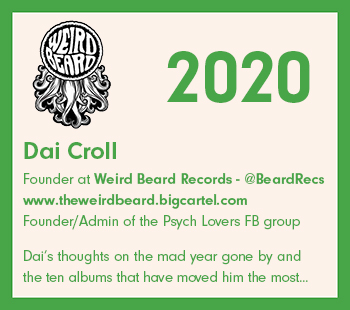
It’s been a strange year, something that (very likely) none of us have seen the likes of before. I don’t think that a year has gone by since I was 14 (31 years ago!) that I haven’t seen a live band or artist performance. That hurts, and I’m sure that I’m not the only person that feels this way. That being said, the global situation has done nothing to stifle creativity. Artists have found new ways to share their output, and whilst no substitute for the atmosphere of a live show, streamed events have certainly taken a front seat in the past few months and have managed to take the edge off what has been a pretty grim time for everybody.
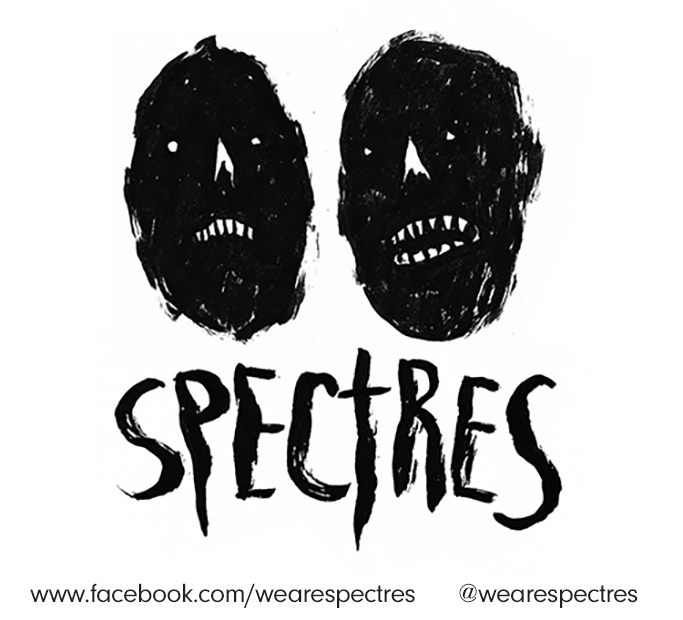
This record took us the better part of three years to finish, numerous re-records, rewrites and frustrating restarts, so it is almost fitting it came out whilst we were all knee-deep in whatever the hell this year is.
It would be naïve of me to sit here and tell you all how hard done by we've been by the suffocating hand of 2020; there are far more people in worse positions than us and the fact we can even release music in this current climate is something we will never take for granted.
We had to exorcise these songs from our husks and we couldn't be prouder of the outcome. Separated by the English Channel, a world-altering virus and already in the midst of a self-inflicted isolation, we haven't gigged or released anything for a while, so we can't wait to play these songs live in 2021, even if it means building our own crypt and inviting you all..
Being on anyone's end of year list is a privilege, so thank you all for listening and coming along for the slog...
Adrian Dutt

50. Such Small Hands - Carousel
49. Dire Wolves - Flow And Heady
48. Dead Sea Apes - Night Lands
47. Nadine Shah - Kitchen Sink
46. Moths & Locusts - Exoplanets
45. Fred Abong - Our Mother Of Perpetual Help
44. The Lovely Eggs - I Am Moron
43. Mayflower Madame - Prepared For A Nightmare
42. Bdrmm - Bedroom
41. Aquarius Lux - The Infinite Korridor
40. The Wytches - Three Mile Ditch
39. Bully - Nestegg
38. Bob Mould - Blue Hearts
37. Mugstar - Graft
36. Krautwerk - Neuling
35. The Band Whose Name Is A Symbol - Berserkir I
34. The Band Whose Name Is A Symbol - Berserkir II
33. The Cribs - Night Network
32. Slow Readers Club - The Joy Of The Return
31. Harry Stafford - Gothic Urban Blues
30. Las Cobras - Selva
29. Ghostpoet - I Grow Tired But Dare Not Fall Asleep
28. Cornershop - England Is A Garden
27. Bo Ningen - Sudden Fictions
26. Fontaines DC - A Hero's Death
25. Mugstar & Damo Suzuki - Invisible Wind Factory
24. Flatworms - Antarctica
23. Girl Band - Live At Vicar Street
22. Ringo Deathstarr - Ringo Deathstarr
21. Pretty Lightning - Jangle Bowls
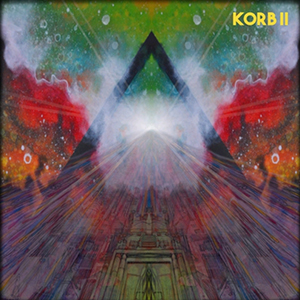

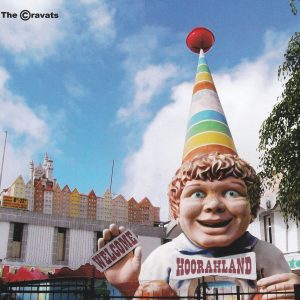

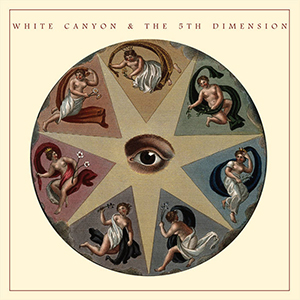





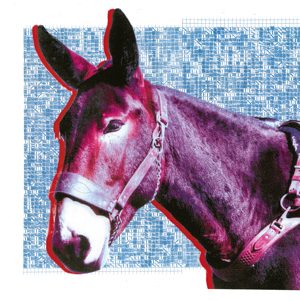

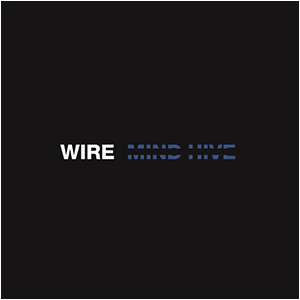



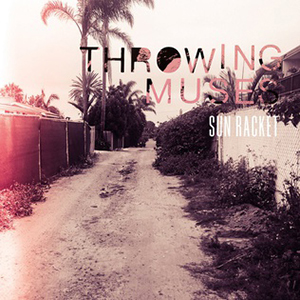

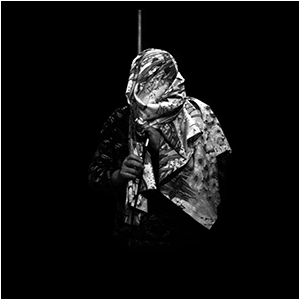
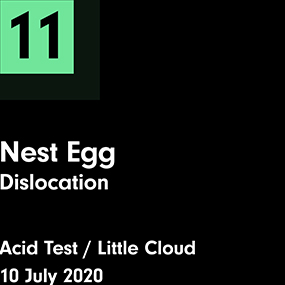
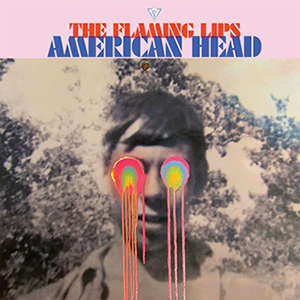

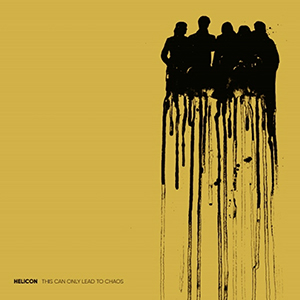

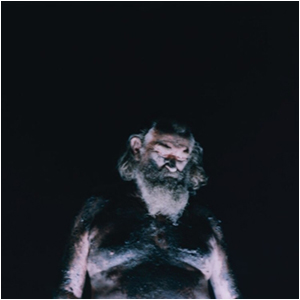

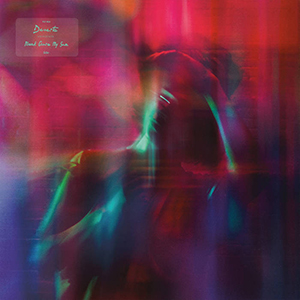



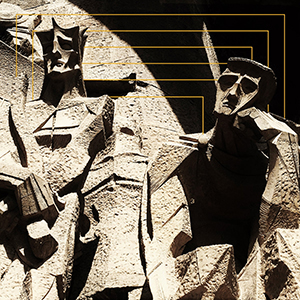

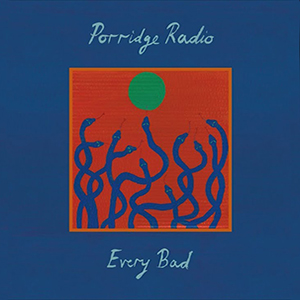





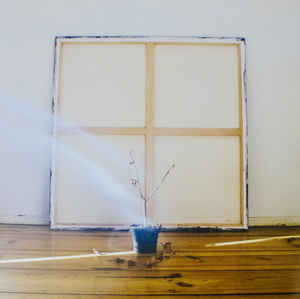

Where It's Never Going To Happen And This Is Why differs from its predecessors is that it lifts up its head and confronts its issues head on. Spectres are no longer buried under the weight of existence, awaiting their imminent and deserved demise, but they exude disdain and exert an authority that is really quite remarkable. The vocals are more than apologetic whispers and the guitars are not fighting for the shadows; this is Spectres with muscle. Perhaps they have been working out with Joe Wicks over the lockdown and that's one broadcast we would love to see. Hell, it even sounds like they are enjoying themselves on occasion which is really disturbing. But whilst looking forward to the band's fourth album, Vitamins, it is pleasing to note that Spectres have actually lost none of their desire to innovate, to tread new paths and create new vistas.
Seven tracks on this album are under three minutes and this makes the whole appear as a collection of snapshots from different times and places. INGTHATIW doesn't work as a coherent whole, but we no longer live in a coherent world so somehow this makes perfect sense. The album was recorded in a nineteenth century Methodist church in Leeds and it was clearly an effective place to be as some of the music here has a resounding hugeness, while other tracks sink grubbily into the crypt. It has been way too long since we last heard from Spectres; hopefully they won't wait for the next pandemic to get together again. A journal of discontent from the year of plague ... an echo of all our lives.

